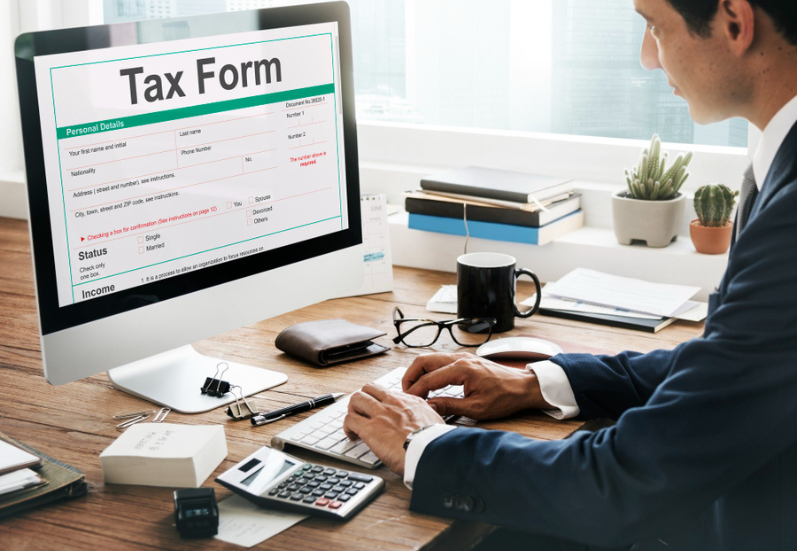
Managing money isn’t exactly a walk in the park. Between rent, credit card bills, EMIs, and those random “oh no” expenses, it’s easy to lose track of what’s due when. Miss one, and suddenly there’s a late fee staring back at you.
It’s frustrating! You’re already short, and now you owe more. The worst part? Those penalties sneak up fast.
But once you actually get what late payment penalties are and figure out how to manage your money better, it’s not as scary as it feels.
What Are Late Payment Penalties?
Late payment penalties are basically the financial version of a slap on the wrist. If you miss the deadline, you pay extra.
Sometimes it’s a flat amount, sometimes it’s a small percentage of what you owe. Either way, it stings.
And it’s not just banks that do this; credit card companies, lenders, and even your internet provider can pile on fees if you don’t pay on time.
Some might hike up your interest rates after a few late payments, which means your debt keeps getting more expensive. In some cases, services might even get paused until you settle up.
Sure, the idea is to make people more punctual with payments, but honestly, these penalties can pile up and cause real financial strain.
Even one late payment can snowball, first a fee, then higher costs, then a dip in your credit score. And no, you can’t go to jail for not paying a payday loan. However, you might end up with collectors calling and your credit taking a hit.
The Real Cost Of Paying Late
A late fee seems small at first. But it’s rarely just that. Miss a few payments, and those “small” charges start stacking up. Suddenly, you’re paying interest on top of fees, and getting caught up starts to feel impossible.
Credit cards are especially dangerous here. Skip one month, and the interest compounds, before long, what you owed doubles.
And that one late mark on your credit history? It can follow you for years. Since payment history makes up a big chunk of your credit score, even one slip can drag your score down.
When that happens, lenders see you as “risky,” and future loans or cards come with higher rates.
Plus, if you miss payments on essentials like electricity or rent, it’s not just your finances that take a hit; it’s your everyday life. Imagine losing power or internet because you missed a payment. That’s stress nobody needs.
Strategies To Avoid Late Payment Penalties
Avoiding late fees isn’t about luck — it’s about routine. A few small habits can make a massive difference.
1. Automate Your Payments
Honestly, this one’s a game-changer. Most banks and billing platforms let you set auto-pay for your bills.
Once it’s done, you don’t have to remember due dates; the system does it for you. Just make sure your account has enough funds to cover it.
2. Use Reminders And Alerts
If auto-pay feels risky, set alerts. A simple phone reminder or email notification a few days before the due date helps you stay ahead. It’s such a small thing, but it works.
3. Build An Emergency Fund
Stuff happens! A sudden medical bill, your car breaks down, or your paycheck’s late. An emergency fund cushions those blows.
Even a small backup fund can help you make payments on time and avoid fees during tough months.
4. Prioritize Critical Payments
When money’s tight, focus on the big ones: rent, utilities, and insurance. Missing those can have real-world consequences.
And if you know you’ll be late, reach out beforehand. Lenders and service providers are often more understanding if you give them a heads-up. Some will even offer short-term extensions or waive fees.
5. Simplify With Debt Management
The juggle between multiple payments may be overwhelming! In that case, consider consolidating. You can easily roll your debts into one payment. This can help you make your life simpler and easier to track.
You can also review all your expenses and further cut all the unnecessary ones. Lastly, you must free up your cash for the things that really do not matter much!
Long-Term Financial Management
Avoiding late payment penalties is just another puzzle piece. The real deal is to build a strong habit. This way, it can become easy for you to keep your money stable for the long term.
You start by tracking all your spending. You would be surprised to see the things that you barely notice. Once you know where your money’s actually going, it’s easier to redirect it toward savings or debt payoff.
Next, set a few goals. They don’t have to be huge! Maybe paying off one card, saving for a trip, or building a rainy-day fund. Goals keep you motivated when budgeting feels dull.
Tackle debt strategically, too. Focus on high-interest ones first. The fewer debts you have, the fewer due dates to track and the less chance of falling behind. Keep an eye on your credit report once in a while, too, just to catch errors early.
And if it all feels too heavy, that’s okay. Talking to a financial counselor or advisor can really help. They can build a plan, speak to creditors for you, and help you breathe again.
What Resources Or Tools Are Available To Help Me Track My Expenses More Efficiently?
There a trick to avoid late payment penalties. You just have to track your expenses. An effective expense tracking system entails the use of both practical and digital methods.
Manual methods
Expense Journal: Recording every purchase in a small notebook helps to develop a consciousness of one’s spending habits.
Receipt Organization: Keeping and managing physical or digital receipts is essential for accurate records and tax preparation.
Digital Spreadsheets: Programs such as Microsoft Excel or Google Sheets give users the freedom to deeply analyze and personalize monitoring using formulas and graphs.
Digital Tools/Apps
Automated Tracking Apps: These mobile applications connect to bank accounts and credit cards to automatically import and categorize transactions, eliminating manual data entry. Such applications are:
- Expensify,
- Zoho Expense,
- YNAB,
- PocketGuard
Receipt Scanning: The Majority of applications have an AI-supported “SmartScan” function.
You just take photos of receipts, and the app automatically extracts the relevant data.
Budgeting Features: Implemented features may allow users to set spending limits, check progress against the budget, track savings goals, and get a real-time overview of spending patterns.
Specialized Tools: Certain apps offer specialized functionality. This includes
- GPS mileage tracking (Everlance)
- Subscription monitoring (Rocket Money).
The optimal method is to have a combination of an automated tool for saving time and a regular practice of checking your expenses for confirming the accuracy and making financial decisions.
What Are The Legal Consequences Of Late Payments?
The legal consequences of late payments may vary by jurisdiction and debt type, whether it is about consumer, commercial, or tax debt. However, it can consistently involve financial penalties and potential legal actions.
Here are the major key consequences, which include:
1. The added costs: The creditors charge late fees and interest. This increases the total amount owed.
2. Credit Damage: If payments are 30 days or more late, they are reported to the credit bureaus. This can significantly affect your overall credit score.
3. Debt collection: The debt may be sent to a particular collection agency. This can lead to persistent contact.
4. Lawsuits and judgments: The creditors can sue the doctor when it is necessary. A simple lawsuit can further result in court orders for three basic things:
- Wage garnishment
- Bank account levies
- Property liens
5. Contract termination: In various commercial settings, the suppliers may terminate contracts or even change their statutory interest. This is around 8% over the base rate. 6. Tax penalties: The late tax payments always incur specific government interest, fines, and potentially criminal prosecution.











0 Reply
No comments yet.